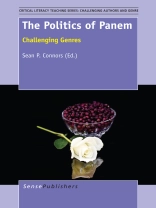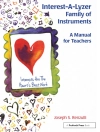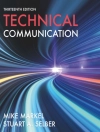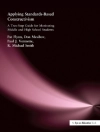The Hunger Games trilogy is a popular culture success. Embraced by adults as well as adolescents, Suzanne Collins’s bestselling books have inspired an equally popular film franchise. But what, if anything, can reading the Hunger Games tell us about what it means to be human in the world today? What complex social and political issues does the trilogy invite readers to explore? Does it merely entertain, or does it also instruct?
Bringing together scholars in literacy education and the humanities, The Politics of Panem: Challenging Genres examines how the Hunger Games books and films, when approached from the standpoint of theory, can challenge readers and viewers intellectually. At the same time, by subjecting Collins’s trilogy to literary criticism, this collection of essays challenges its complexity as an example of dystopian literature for adolescents. How can applying philosophic frameworks such as those attributable to Socrates and Foucault to the Hunger Games trilogy deepen our appreciation for the issues it raises? What, if anything, can we learn from considering fan responses to the Hunger Games? How might adapting the trilogy for film complicate its ability to engage in sharp-edged social criticism? By exploring these and other questions, The Politics of Panem: Challenging Genres invites teachers, students, and fans of the Hunger Games to consider how Collins’s trilogy, as a representative of young adult dystopian fiction, functions as a complex narrative. In doing so, it highlights questions and issues that lend themselves to critical exploration in secondary and college classrooms.
สารบัญ
Acknowledgements; Introduction: Challenging the Politics of Text Complexity; Part One: “It’s All How You’re Perceived”: econstructing Adolescence in Panem; 1. “Some Walks You Have to Take Alone”: Ideology, Intertextuality, and the Fall of the Empire in The Hunger Games Trilogy; 2. Worse Games To Play?: Deconstructing Resolution in The Hunger Games; 3. Hungering for Middle Ground: Binaries of Self in Young Adult Dystopia; Part Two: “I Have A Kind of Power I Never Knew I Possessed”: What Philosophy Tells Us about Life in Panem; 4. The Three Faces of Evil: A Philosophic Reading of The Hunger Games; 5. “I Was Watching You, Mockingjay”: Surveillance, Tactics, and the Limits of Panopticism; 6. Exploiting the Gaps in the Fence: Power, Agency, and Rebellion in The Hunger Games; Part Three: “Look at the State They Left Us In”: The Hunger Games as Social Criticism; 7. “It’s Great to Have Allies As Long As You Can Ignore the Thought That You’ll Have to Kill Them”: A Cultural Critical Response to Blurred Ethics in The Hunger Games Trilogy; 8. “I Try to Remember Who I Am and Who I Am Not”: The Subjugation of Nature and Women in The Hunger Games; 9. “We End Our Hunger for Justice!”: Social Responsibility in The Hunger Games Trilogy; Part Four: “That’s a Wrap”: Films, Fandom, and the Politics of Social Media; 10. “She Has No Idea. The Effect She Can Have”: A Rhetorical Reading of The Hunger Games; 11. Are the -Isms Ever in Your Favor?: Children’s Film Theory and The Hunger Games; 12. The Revolution Starts With Rue: Online Fandom and the Racial Politics of The Hunger Games; Afterword: Why Are Strong Female Characters Not Enough?: Katniss Everdeen and Lisbeth Salander, from Novel to Film; Author Biographies.












